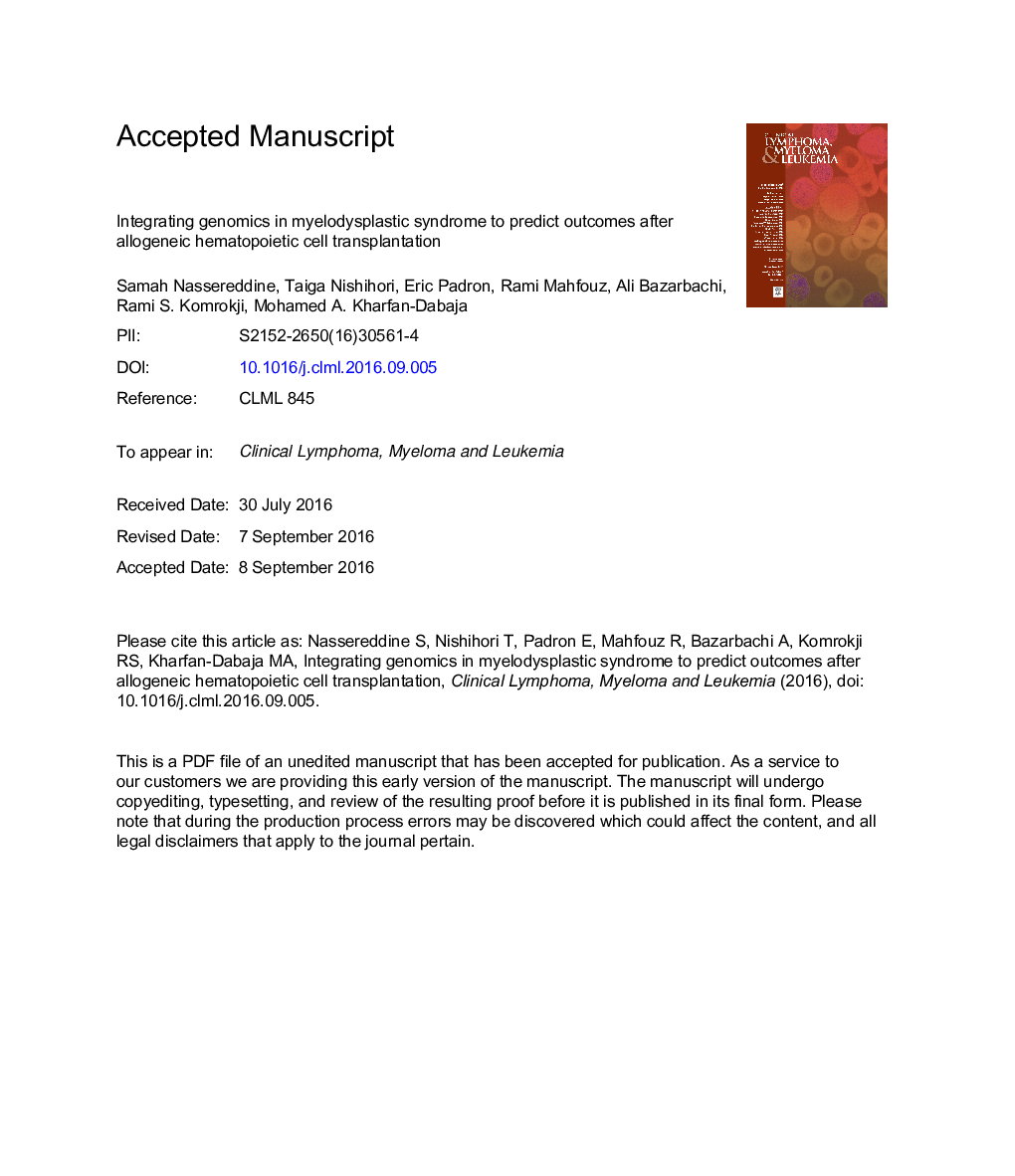| Article ID | Journal | Published Year | Pages | File Type |
|---|---|---|---|---|
| 5581781 | Clinical Lymphoma Myeloma and Leukemia | 2017 | 23 Pages |
Abstract
Myelodysplastic syndrome (MDS) is a heterogeneous group of clonal hematopoietic neoplastic disorders most commonly occurring in the elderly population; MDS has a tendency to progress to acute leukemia. Although epigenetic therapies have improved the outcomes of MDS patients, allogeneic hematopoietic cell transplantation remains the only curative option. Molecular characterization of MDS using next-generation sequencing has expanded not only the knowledge on MDS but also the depth of understanding of evolution and contribution of recurrent somatic mutations in precursor conditions. Rapidly evolving genomic information on MDS may provide clinicians with better risk stratification tools and may also aid in supplying useful information to allow comprehensive therapeutic decision making for MDS patients. In this concise review, we summarize the current knowledge and understanding of recurrent somatic mutations in MDS and discuss salient genomic information predicting response and influencing therapeutic outcomes in the context of allogeneic hematopoietic cell transplantation, as well as the potential application of these findings into future clinical practice.
Related Topics
Health Sciences
Medicine and Dentistry
Anesthesiology and Pain Medicine
Authors
Samah Nassereddine, Taiga Nishihori, Eric Padron, Rami Mahfouz, Ali Bazarbachi, Rami S. Komrokji, Mohamed A. Kharfan-Dabaja,
